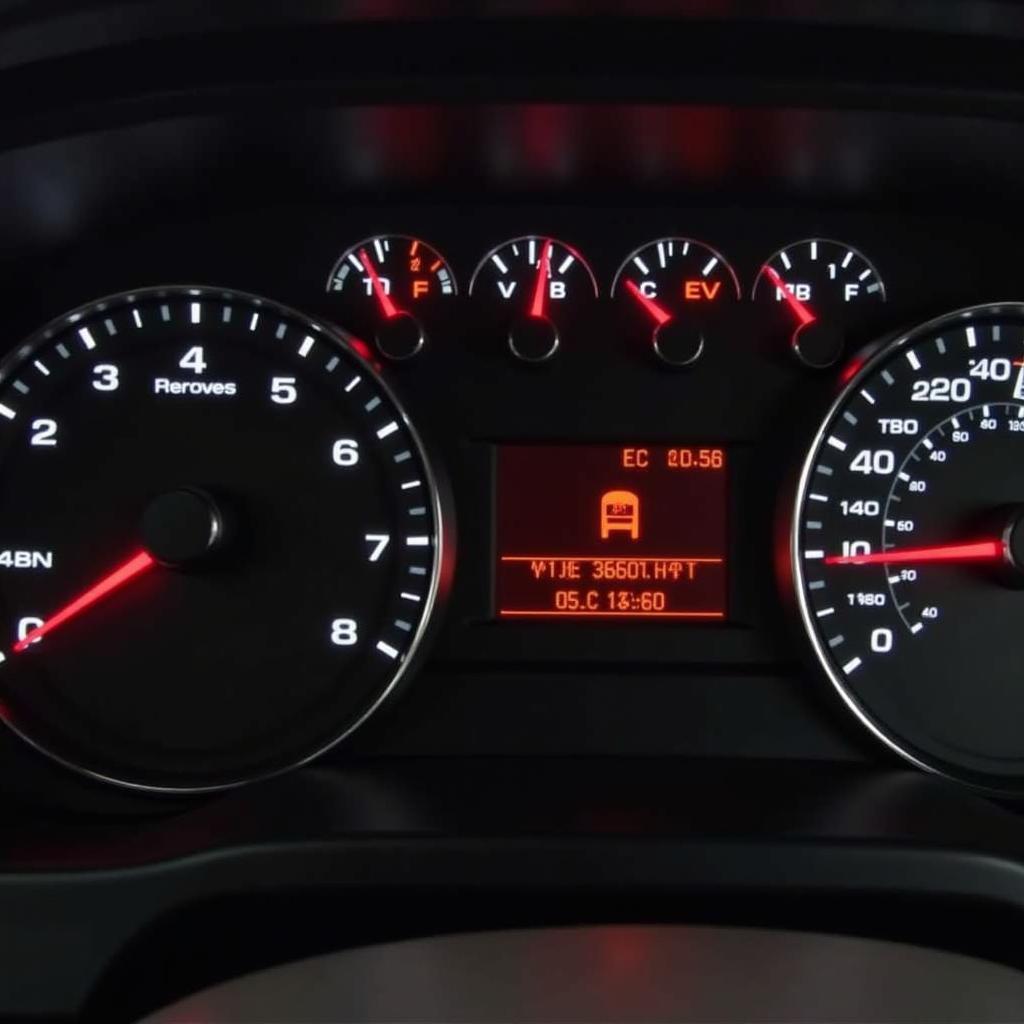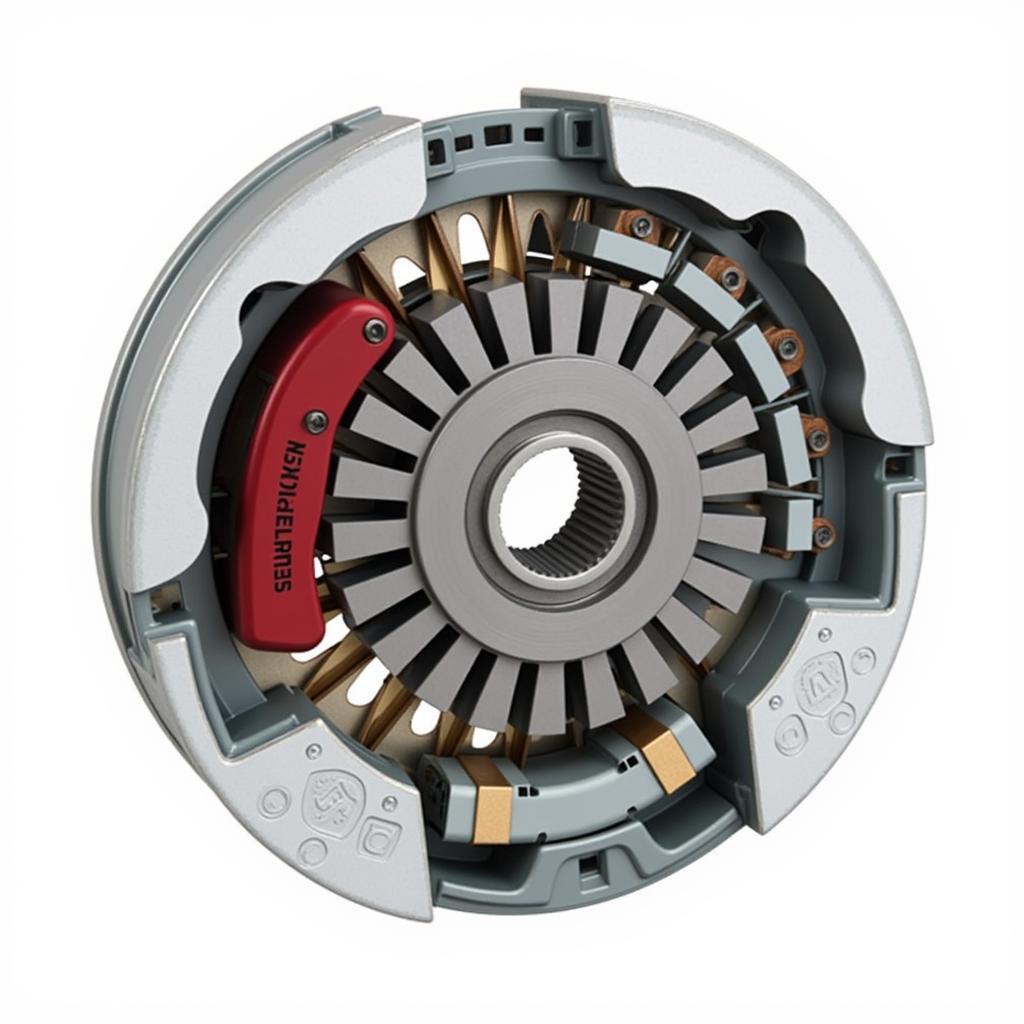Your car won’t start, and you’ve already ruled out the battery. Now what? This is a frustrating situation, but a surprisingly common one. We’ll guide you through the potential culprits and help you get back on the road.
 Checking a car battery with a multimeter
Checking a car battery with a multimeter
It’s easy to assume a dead battery is the problem when your car won’t turn over, but sometimes the issue lies elsewhere. If you’ve check if car battery is dead and it’s showing a healthy charge, then you need to start exploring other possibilities.
Beyond the Battery: Common Starting Problems
Several components work together to start your car, and a fault in any of them can prevent the engine from cranking or firing up. Let’s explore some of the most common culprits:
The Starter Motor: The Engine’s Cranking Muscle
The starter motor is responsible for cranking the engine, the initial spin that gets the combustion process going. If your car’s lights and accessories work but the engine doesn’t even try to turn over when you turn the key, a faulty starter motor is a likely suspect.
-
Clicking Sound: A rapid clicking sound when you turn the key is a telltale sign of a failing starter solenoid, a component within the starter motor.
-
Grinding Noise: A grinding noise could indicate worn-out starter gears.
-
Nothing Happens: No sound or movement when you turn the key might mean a completely dead starter motor.
 Inspecting a faulty starter motor
Inspecting a faulty starter motor
Ignition System Woes: The Spark of Life
The ignition system provides the spark that ignites the air-fuel mixture in the engine cylinders. Problems here can prevent the engine from starting even if it cranks.
-
Faulty Spark Plugs: Worn or fouled spark plugs can’t generate the necessary spark.
-
Bad Ignition Coil: The ignition coil provides the high voltage needed for the spark plugs.
-
Cranks but Won’t Start: If the engine cranks but doesn’t fire up, the problem might lie within the ignition system.
Fuel System Issues: No Gas, No Go
A lack of fuel or a problem with fuel delivery can prevent the engine from starting.
-
Empty Fuel Tank: It may seem obvious, but sometimes the simplest explanation is the correct one. Check your fuel gauge.
-
Clogged Fuel Filter: A clogged fuel filter restricts fuel flow to the engine.
-
Faulty Fuel Pump: The fuel pump delivers fuel from the tank to the engine.
“A simple test is to listen for the fuel pump priming when you turn the key to the ‘on’ position. If you don’t hear a faint whirring sound, it could indicate a fuel pump issue,” advises automotive expert, David Miller, ASE Certified Master Technician.
Other Potential Culprits: Looking Beyond the Obvious
Beyond the major systems mentioned above, several other less common issues can cause starting problems. These include:
-
Security System Malfunction: A faulty immobilizer system can prevent the engine from starting.
-
Bad Alternator: While the alternator charges the battery while the engine is running, a completely failed one can sometimes create a drain that prevents starting. testing for a parasitic battery drain can help determine if this is the case.
-
Wiring Problems: Corroded or damaged wiring can disrupt the flow of electricity to essential components. You can check articles like 4 amp draw on car battery to understand how excessive drain can impact your car’s starting ability.
“Remember, a car’s electrical system is complex. Even seemingly unrelated issues can sometimes cause starting problems. A thorough diagnostic is often necessary,” adds Sarah Chen, Lead Electrical Systems Engineer at Automotives Inc.
Diagnosing the Problem
If you’re not comfortable working on your car yourself, it’s best to take it to a qualified mechanic. They have the tools and expertise to diagnose the problem accurately. If your battery needs attention, remember there are ways to revitalize it. Consider learning about charging a completely dead battery and will a completely dead battery charge to be prepared for future situations.
Conclusion: Getting Your Car Started
When your car won’t start but it’s not the battery, it can be a perplexing situation. By systematically checking the starter motor, ignition system, and fuel system, you can narrow down the possibilities and hopefully get back on the road quickly. Remember, safety first! If you’re unsure about anything, consult a professional.
FAQ:
-
What should I do if my car won’t start and it’s not the battery? Start by checking the starter motor, ignition system, and fuel system.
-
Can a bad alternator prevent my car from starting? Yes, a failing alternator can sometimes drain the battery enough to prevent starting.
-
What does a clicking sound when I turn the key mean? This often indicates a problem with the starter solenoid.
-
My engine cranks but won’t start. What could be the problem? This often points to an issue with the ignition or fuel system.
-
Is it safe to try and fix starting problems myself? If you’re comfortable working on cars, you can try basic troubleshooting. If you’re unsure, consult a mechanic.
-
What’s the most common reason a car won’t start other than the battery? A faulty starter motor is a frequent culprit.
-
How can I prevent future starting problems? Regular maintenance, including battery checks and replacing worn components, can help prevent future starting issues.


